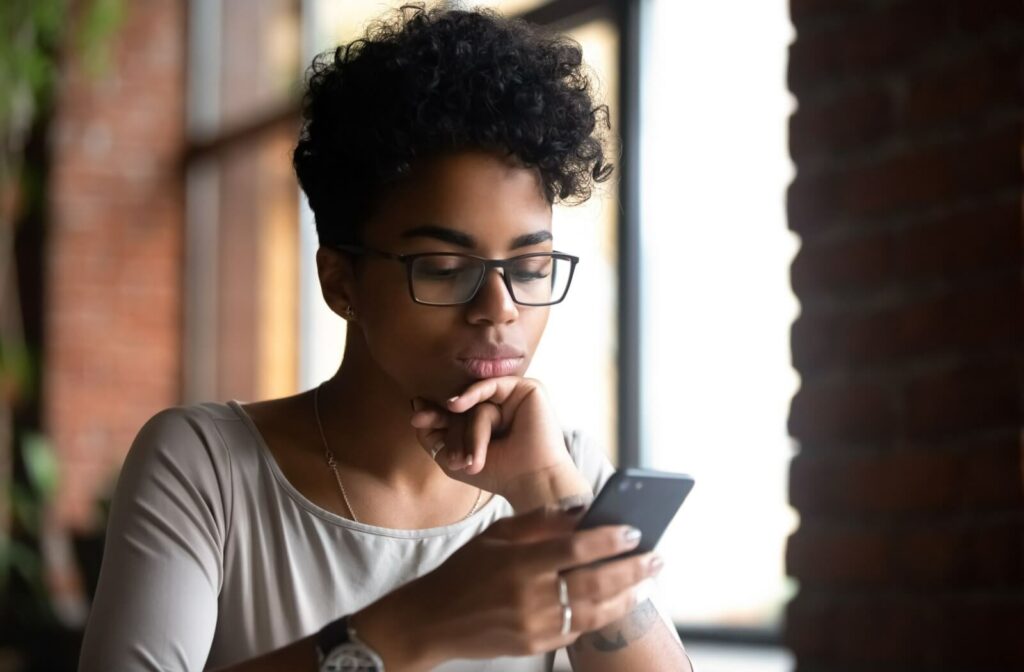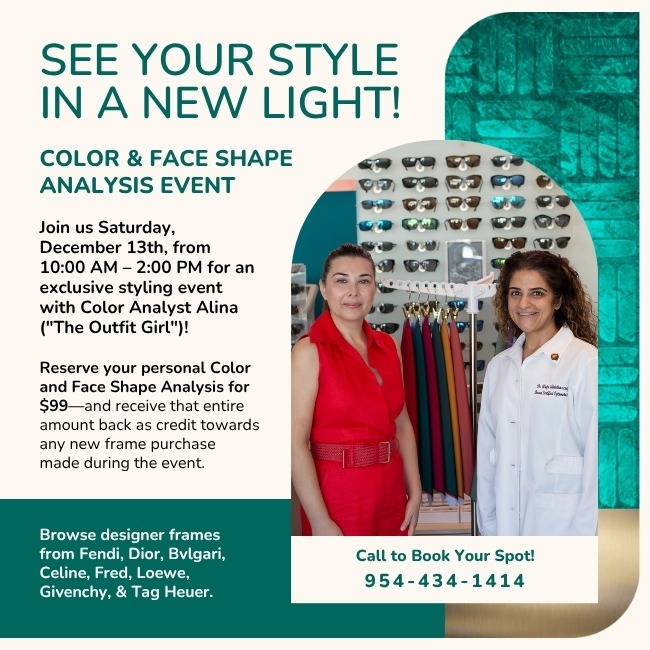If you’ve recently started wearing glasses, or have been using them for years, you’ve probably heard the myth that glasses can make your eyesight worse. It’s a common claim and an unnerving one at that. After all, who wants to think that the tool designed to help you see better might actually hurt your vision?
Thankfully, science says otherwise. Not only do glasses not weaken your eyesight, but they’re also an important tool for correcting and improving vision.
Your eyes may change over the years, but glasses themselves aren’t responsible for those changes. Many elements, like age or health conditions, can impact your eyesight, but wearing glasses doesn’t make it worse. It’s all about finding the right prescription and taking good care of your eyes.
Glasses & Your Eyesight
Wearing glasses is like having a high-definition filter for your world. They correct issues like:
- Nearsightedness (myopia)
- Farsightedness (hyperopia)
- Astigmatism
- Presbyopia (which typically happens as we age)
Despite their benefits, many people worry that adjusting to glasses might create dependency or worsen their prescription over time.
But here’s the truth—glasses are simply a tool to enhance your eyesight. They don’t change the biological structure of your eyes. They compensate for the imperfections in your eye’s ability to focus, ensuring you can see clearly and comfortably.
How Glasses Help Your Vision
When your eye doctor prescribes glasses, their goal is to match your vision needs. Each lens is customized to bend light in just the right way so it focuses properly on your retina. This is why you can go from squinting to reading signs across the street with ease.
The myth that glasses worsen your eyesight likely stems from the adjustment period. When you first start wearing glasses, or a new prescription, it can feel disorienting. This isn’t your eyes getting “weaker”; it’s your brain taking time to adapt to the improved clarity. Once adjusted, many people find they can focus more effortlessly and experience less eye strain.
What Impacts Your Eyesight?
While glasses aren’t to blame for worsening vision, other things may contribute to changes in your eyesight:
- Age: Conditions like presbyopia, which makes it harder to focus on close objects, typically develop around your 40s.
- Genetics: Family history has a strong influence on whether you’ll encounter vision problems such as myopia or glaucoma.
- Screen time: Prolonged use of screens can lead to eye strain and fatigue, incorrectly leading some to believe their glasses aren’t doing enough.
- Health conditions: Issues like diabetes or hypertension can affect your eye health, emphasizing the importance of regular check-ups.
Regular Eye Exams for Healthy Vision
Your eyesight changes subtly over time, often without you noticing. Regular eye exams help ensure that your prescription is current and that any potential eye health issues are caught early. Think of glasses as part of a broader toolkit for maintaining good vision, with eye exams being your yearly tune-up.
Eye exams are especially important for children since undiagnosed vision problems can impact their education and quality of life.
How to Know When It’s Time for a New Prescription

Signs that you may need a new prescription include:
- Frequent squinting.
- Blurry or double vision.
- Increased headaches, especially after reading.
Your eye care professional can help determine if it’s time for an update, restoring clarity and preventing unnecessary discomfort.
Tips for Caring for Your Glasses & Eyes
Your glasses are your trusted vision companion, and taking care of them ensures they work efficiently for you. Here’s how to keep both your glasses and your eyes in top shape:
- Clean your glasses regularly: Use a lens cleaning solution and microfiber cloth to avoid scratches and smudges.
- Store them safely: Keep your glasses in a protective case when not in use to avoid damage.
- Take screen breaks: Follow the 20-20-20 rule, every 20 minutes, look at something 20 feet away for at least 20 seconds.
- Wear sunglasses: Protect your eyes from harmful UV rays by wearing sunglasses outdoors.
- Eat eye-healthy foods: Include foods rich in antioxidants and vitamins, like leafy greens, carrots, and fish, for stronger eyes.
How to Prevent Eye Strain While Wearing Glasses
Eye strain can occur even when you’re wearing the right glasses, especially during long periods of reading, screen time, or close-up work. To prevent or reduce eye strain:
- Adjust your screen settings by increasing text size and reducing glare.
- Ensure you’re working in well-lit environments to reduce contrast strain.
- Blink frequently and use artificial tears if your eyes feel dry.
Ready for an Eye Exam?
Glasses won’t make your eyesight worse they’re essential for clear and comfortable vision. They reduce strain, support proper vision, and give your brain a break from overcompensating.
Healthy vision depends on addressing the real factors behind eye health, like regular eye exams, taking screen breaks, and proper eyewear care.
Your glasses are here to help, not harm, wear them with confidence. Need an eye exam or new glasses? Book your appointment with EyeQ Optical and see the difference!




